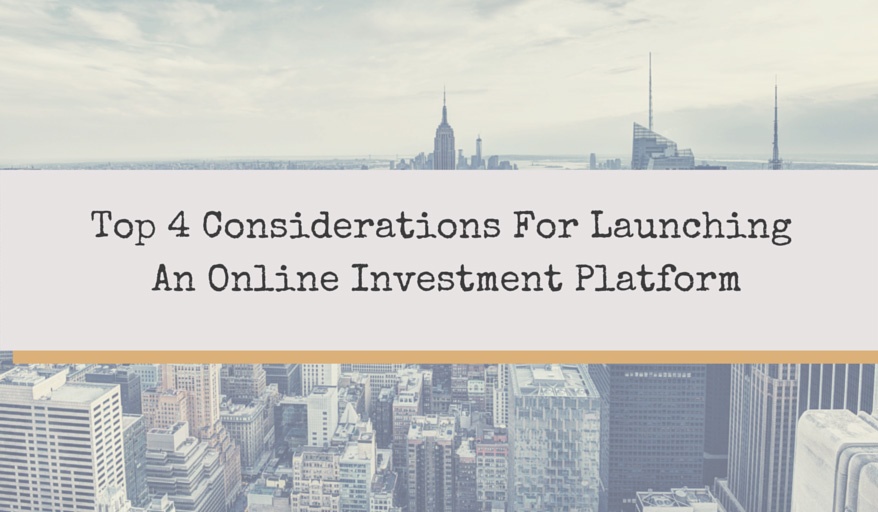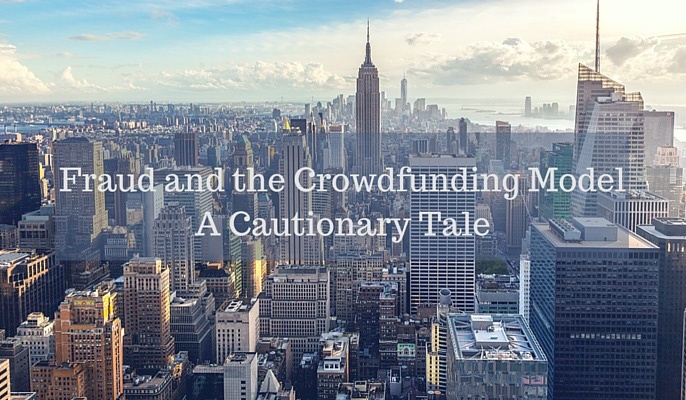
Mar 14, 2016
While the regulatory frameworks and rules for investment crowdfunding with accredited investors and non-accredited investors vary from country to country, there are four key considerations for bringing an online investment platform to market.
Depending on the platform structure and area of operation, the themes below highlight the considerations when dealing with security commissions and regulatory authorities.
General Partner vs. Intermediary models
The real estate marketplace model is what we define as the intermediary model, where the platform owner and the companies raising capital are independent. While the platform may screen issuers and deals for quality, the deals are still managed by third party issuers. The business model is usually transaction success fee driven, which in most countries requires some type of financial license. The other option is the General Partner model where the platform is being used to market proprietary deals online, using a management fee + % of profits business model. The General Partner model is the easiest as a starting point in most regions as firms are typically shifting their offline activities online and leveraging the same compliant processes.
Solicitation vs. Non-Solicitation
The solicitation ability will be a game changer in the long term, particularly with Title III rules in May 16th 2016, which include non-accredited investors. It is great to see frameworks in place for accredited investor solicitation in a number of influential countries as a starting point. Many groups will be more comfortable in the short term launching a non-solicitation platform. This is because it’s in line with their current investor onboarding methods without “generally” soliciting, such as scheduling web conferences/phone calls/face-to-face meetings with new investors that have been referred, introduced, etc. Under this scenario, the investment platform is acting as an investor relations tool for efficiencies and a better investor experience. General solicitation can always be used at a later date for permitted marketing strategies.
Debt vs. Equity
Debt based platforms often sidestep stricter securities laws regarding equity. Starting with debt deals rather than equity, and evolving the platform for equity deals in the future is a possibility. Understanding the differences in compliance related to the two instruments may create a feasible roadmap for the business.
Domestic vs. Foreign Investors
Regulatory bodies in most countries are focused on protecting domestic investors than foreign investors. Whether your focus is high net worth individuals or institutional firms, dealing with foreign investors may open up additional possibilities or liabilities. Thus, it is important to grasp the implications of both focus to navigate the best go to market strategy.
Under every scenario, enlist the services of an experienced securities lawyer in your region to create a go-to-market strategy for your platform that is fully compliant.
Article also appeared on timesrealtynews.com:
http://timesrealtynews.com/top-4-considerations-for-launching-an-online-investment-platform-for-real-estate/

Mar 2, 2016
The Title III provisions were described by Forbes Magazine as the democratization of investing. Mark Roderick, a leading Crowdfunding attorney wrote, 'Title III Crowdfunding is like nothing seen before in the U.S. securities industry.' Through Crowdfunding non- accredited investors (making under $200,000 in income and less than $1 million in net worth excluding their primary residence) can invest in anything from a start up company to real estate. Investments that in the past have been available primarily to the accredited investor (making over $200,000 in income with more than $1 million in assets net primary residence).

Mar 2, 2016
We have all heard the term caveat emptor, Latin for let the buyer beware. All securities offerings come with lengthy legal jargon essentially informing the investor that past returns are no guarantee of future earnings. These rules, however, do not protect the investor from potential fraud. The first prosecution of a fraud case involving crowdfunding was filed by the SEC in the US District Court of Nevada. The company in question had used several crowdfunding platforms to raise money under the Title II rules of the JOBS Act. The complaint alleges that only a small percentage of the money raised went into the stated investment and was instead funnelled into 'expenses'. So what is a potential investor to do? The answer is due diligence and investing in platforms backed by real property.

Jul 30, 2015
On a global stage, Crowdfunding is democratizing financial markets and shifting an entire industry online.

Jul 30, 2015
Until not so long ago, commercial real estate investment in the U.S. belonged to the limited class of accredited investors. Institutions and wealthy families were the only groups authorized to preserve wealth or speculate with real estate. Now, with the explosion of online crowdfunding and the slow but relentless legal opening of the market to smaller investors by the SEC, every person can join the wealthy and participate in what’s expected to become one, if not the biggest, of financial investment opportunities.
A real estate crowdfunding online platform matches investors with sponsors of real estate projects, whether single family homes, apartments, retail, hotels, office buildings, or else. It operates under two different models: the debt crowdfunding, which lends money to a company to buy the property and the equity crowdfunding, purchasing shares in the company that buys the property.
Benefits may come then from returns based on a traditional model of debt and interest, or from equity.
900-903 8th Ave SW
Calgary, AB T2P 0P7